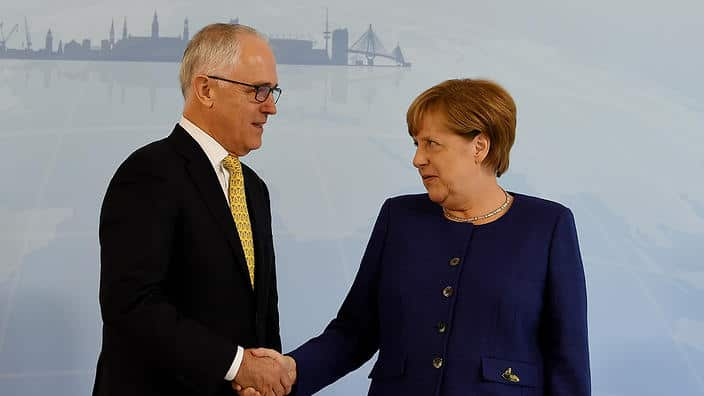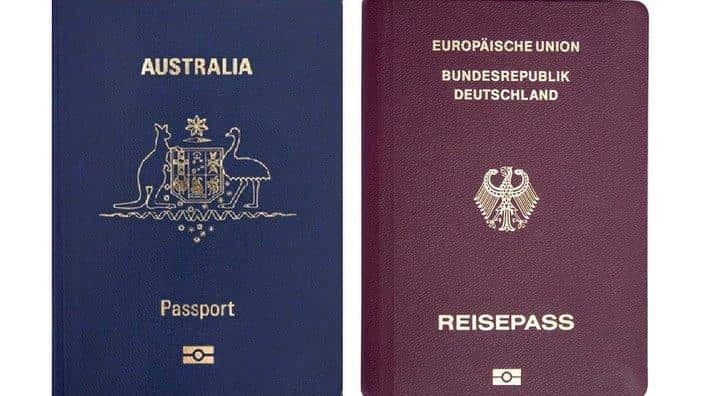Lessons for Canberra from Berlin
In Australia, the upcoming German federal election does not receive anywhere near as much attention as the previous elections in the U.K. or France. However, it is exactly this predictability and lack of political furor that has served Germany so well in recent decades.
In times of Brexit and Donald Trump, Germany offers an important factor of stability.
SBS German has invited five guests from the German community on air who are still passionate about the political events in Berlin. They support many of the major policies and agree that Germany's stable political system is crucial to the success of Europe as a whole. Although far from being open Merkel supporters, our panel guests agree that there are a few lessons that politicians in Canberra could learn from the Berlin-style of politics.
"It's interesting because Labor and the Liberals are not fundamentally different. However, no one would ever admit it", explains Melbourne lawyer Alicia Hässlein on the SBS German panel.
Germany's political culture differs significantly from what Australian voters are accustomed to. "Since they make decisions together it's less common to criticise each other", says Heather Benbow from Melbourne University. She stresses that the Grand Coalition between the two major parties has lead to a unique collaboration on the highest levels of decision making.

"In Australia, we see a constant dispute between the parties. Each of them is required to challenge each other's plans", Benbow says. While sharing government seems impossible for Labor and Liberals in Australia, German voters have become used to the fact that the blame game between the two major parties has been reduced to polite remarks.
"Germany's willingness to compromise may sound boring, but it is a much better way."
Rainer Trefz
Supporters of the Grand Coalition in Germany underline that much progress has been made under this form of government. Many laws were passed quickly without extensive debates. Therefore, Merkel's government has been able to quickly adapt to crisis situations or to new challenges on the labour market.
Melbourne-based German advertising executive Rainer Trefz believes that a will to compromise is required in order to get things done in Canberra. "Australians tend to block each other's proposals, but that's not how the job is supposed to be done", says Trefz on the SBS panel.
Although openly against the same-sex marriage act, Merkel allowed members of her own conservative party the free conscience vote, thereby passing the law while saving face. A smart political move, only months before the federal election.
The same-sex marriage act was passed in German parliament in under a week.
Nevertheless, it is this combined power that is all too often criticised by the weakened opposition that merely consists of a few minor parties. A Grand Coalition stifles debate and is no long-term solution for a healthy democracy, is what many journalists and even members of the two major parties are saying. In fact, Merkel's minor partner, the Social Democrats (SPD), are aware that they always seem to cop the flak when things go wrong, however, Merkel's CDU seems to reap the rewards for major achievements. Therefore, the German election 2017 could see the end of the Grand Coalition.

According to current polls, Merkel will gain the support of around 40 % of the people, while the Social Democrats under Martin Schulz are only expected to secure around 20 % of the votes.
Why Germans in Australia feel ignored by Berlin
No matter how Germans in Australia think about Angela Merkel. There is one obstacle that she stands for, which directly affects every German citizen abroad - the dual citizenship issue. The way Merkel's government handles the dual citizenship, which according to her doesn't even exist in general law, has been criticised on many occasions by members of the German expat community, as German nationals outside of the E.U. face major bureaucratic hurdles before they can become eligible to become a dual citizen of another country, such as Australia.
Angela Merkel is openly against the idea of dual citizenship.

The 3.4 million Germans abroad have no political voice in Berlin.
The vague rules around citizenship affect up to 3.4 million Germans abroad who often cannot become a fully integrated member of their new home country due to the complexity of the law. Only weeks before the election, Chancellor Angela Merkel has openly confirmed that Germany does not support the principle of dual citizenship and that there will be no amendments under her leadership, which is likely to occur, according to recent polls.
Listen to the panel talk (in German) to find out more about the German perspective.

Follow SBS German´s special coverage of the upcoming election - on the radio, online and on Facebook.
